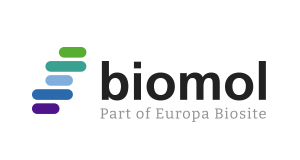Interleukin-21, mouse recombinant (rmIL-21)
Interleukin-21, mouse recombinant (rmIL-21)
Artikelnummer
BOL97298.10
Verpackungseinheit
10 µg
Hersteller
Biomol
Verfügbarkeit:
wird geladen...
Preis wird geladen...
Kategorie: Cytokines
Formulation: purified
Storage: -20°C
Weight: 15000 D
Purity: >95%
Description: Cytokine with immunoregulatory activity. May promote the transition between innate and adaptive immunity. Induces the production of IgG(1) and IgG(3) in B-cells. May play a role in proliferation and maturation of natural killer (NK) cells in synergy with IL15. May regulate proliferation of mature B- and T-cells in response to activating stimuli. In synergy with IL15 and IL18 stimulates interferon gamma production in T-cells and NK cells (By similarity). During T-cell mediated immune response may inhibit dendritic cells (DC) activation and maturation. (www.uniprot.org) Mouse recombinant Interleukin-21 produced in E.coli is a single, non-glycosilated polypeptide chain containing 130 amino acids and having a total molecular mass of 15kDa. IL-21 is produced by CD4 T-cells in response to antigenic stimulation. Its action enhances antigen-specific responses of immune cells. The biological effects of IL-21 include induction of differentiation of T-cells-stimulated B-cells into plasma cells and memory B-cells, stimulation (in conjuction) with IL-4 of IgG production, and induction of apoptotic effects in native B-cells and stimulated B-cells in the absence of T-cell signaling. Additionally, IL-21 promotes the anti-tumor activity of CD8 T-cells and NK cells. IL-21 exerts its effect through binding to a specific type I cytokine receptor, IL-21R, which also contains the gamma chain found in other cytokine receptors including IL-2, IL-4, IL-7, IL-9 and IL-15. The IL-21/IL-21R interaction triggers a cascade of events which includes activation of the tyrosine kinases JAK1 and JAK3, followed by activation of the transcription factors STAT1 and STAT3.
Formulation: purified
Storage: -20°C
Weight: 15000 D
Purity: >95%
Description: Cytokine with immunoregulatory activity. May promote the transition between innate and adaptive immunity. Induces the production of IgG(1) and IgG(3) in B-cells. May play a role in proliferation and maturation of natural killer (NK) cells in synergy with IL15. May regulate proliferation of mature B- and T-cells in response to activating stimuli. In synergy with IL15 and IL18 stimulates interferon gamma production in T-cells and NK cells (By similarity). During T-cell mediated immune response may inhibit dendritic cells (DC) activation and maturation. (www.uniprot.org) Mouse recombinant Interleukin-21 produced in E.coli is a single, non-glycosilated polypeptide chain containing 130 amino acids and having a total molecular mass of 15kDa. IL-21 is produced by CD4 T-cells in response to antigenic stimulation. Its action enhances antigen-specific responses of immune cells. The biological effects of IL-21 include induction of differentiation of T-cells-stimulated B-cells into plasma cells and memory B-cells, stimulation (in conjuction) with IL-4 of IgG production, and induction of apoptotic effects in native B-cells and stimulated B-cells in the absence of T-cell signaling. Additionally, IL-21 promotes the anti-tumor activity of CD8 T-cells and NK cells. IL-21 exerts its effect through binding to a specific type I cytokine receptor, IL-21R, which also contains the gamma chain found in other cytokine receptors including IL-2, IL-4, IL-7, IL-9 and IL-15. The IL-21/IL-21R interaction triggers a cascade of events which includes activation of the tyrosine kinases JAK1 and JAK3, followed by activation of the transcription factors STAT1 and STAT3.
| Artikelnummer | BOL97298.10 |
|---|---|
| Hersteller | Biomol |
| Hersteller Artikelnummer | 97298.10 |
| Verpackungseinheit | 10 µg |
| Mengeneinheit | STK |
| Reaktivität | Mouse (Murine) |
| Wirt | Escherichia Coli |
| Produktinformation (PDF) | Download |
| MSDS (PDF) |
|

 English
English






